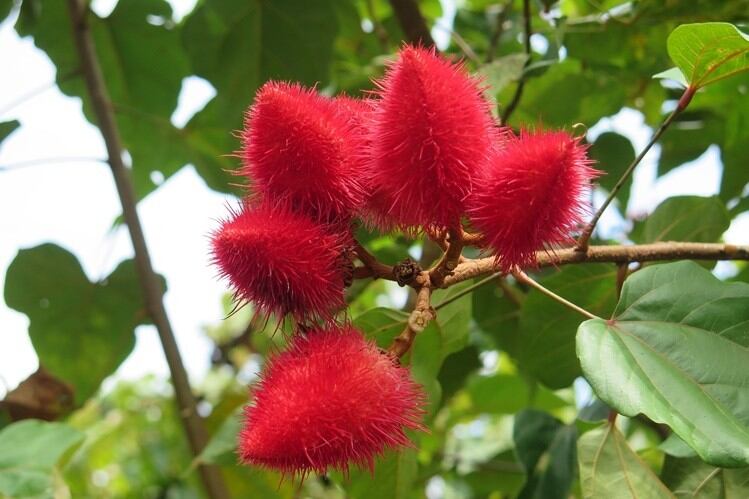Individuals with diabetes are at an increased risk of various bone and joint disorders, though the cause isn’t yet clear, according to the Mayo Clinic.
But an orange-red tropical fruit called annatto may help attenuate bone loss while simultaneously managing blood sugar levels, according to the two studies.
The first, published in the journal Bone and conducted by researchers at the Universiti Kebangsaan Malaysia, suggested that rats supplemented with annatto tocotrienols exhibited normalized conditions for both anabolism and bone mineral density associated with metabolic syndrome (diabetes), achieved through regulation of hormone levels and inflammatory response.
The second study, published in Scientific Reports, was conducted by researchers at Texas Tech University. They suggested that annatto tocotrienol in mice had positive effects in terms of “glucose homeostasis, bone turnover biomarkers, bone volume, and bone microarchitecture” in mice.
Both studies used a branded form of annatto tocotrienol called DeltaGold, manufactured by Massachusetts-based American River Nutrition. The company partially funded and solicited the Texas Tech study, but for the Malaysian study it only supplied the ingredient, according to a spokesperson.
“These independent studies show for the first time that DeltaGold annatto tocotrienol as a single agent can target both metabolic and bone health,” said Dr. Barrie Tan, president of American River Nutrition.
“With more than a third of all Americans being pre-diabetic or diabetic and bearing an increased risk of osteoporosis, these results are welcome news to those battling both ailments, and support clinical data espousing DeltaGold benefits to metabolic health as we age and the aging bone.”
Study details
Both studies looked at mice induced with metabolic syndrome and osteoporosis using a high-carbohydrate, high-fat diet. Both also compared biomarker changes between mice given just a standard chow diet and mice supplemented with tocotrienols.
For the Malaysian study, researchers used doses that correspond to human doses of 680mg and 1,130mg/day, and found that the supplemented mice had improved metabolic syndrome parameters such as blood pressure, fasting blood glucose, triglycerides, and total cholesterol compared to the group given tocotrienol-stripped palm oil (which is naturally a rich source of tocotrienol).
The Texas study’s focus was to compare different doses of tocotrienol with metformin, a prescription anti-diabetic drug.
For bone protection, the higher tocotrienol dose outperformed metformin by increasing bone formation and trabecular volume, and decreasing bone resorption and trabecular separation, while the lower tocotrienol dose was as effective as metformin for bone improvements.
“The current animal study represents a critical step towards understanding the impact of annatto-extracted tocotrienol on bone health and obese Type 2 Diabetes Mellitus patients,” they wrote in their report.
The Texas Tech researchers were responsible for another study published at the start of this year that elucidated a link between bone health and annatto tocotrienols, also supported by American River Nutrition, which was published in Osteoporosis International.
Source: Bone
Published online ahead of print, https://doi.org/10.1016/j.bone.2018.07.003
“Exploring the potential of tocotrienol from Bixa Orellana as a single agent targeting metabolic syndrome and bone loss”
Authors: Sok Kuan Wong, et al.
Source: Scientific Reports
(2018) 8:11377 | DOI:10.1038/s41598-018-29063-9
“Annatto-extracted tocotrienols improve glucose homeostasis and bone properties in high-fat diet-induced type 2 diabetic mice by decreasing the inflammatory response”
Authors: Chwan-Li Shen, et al.


